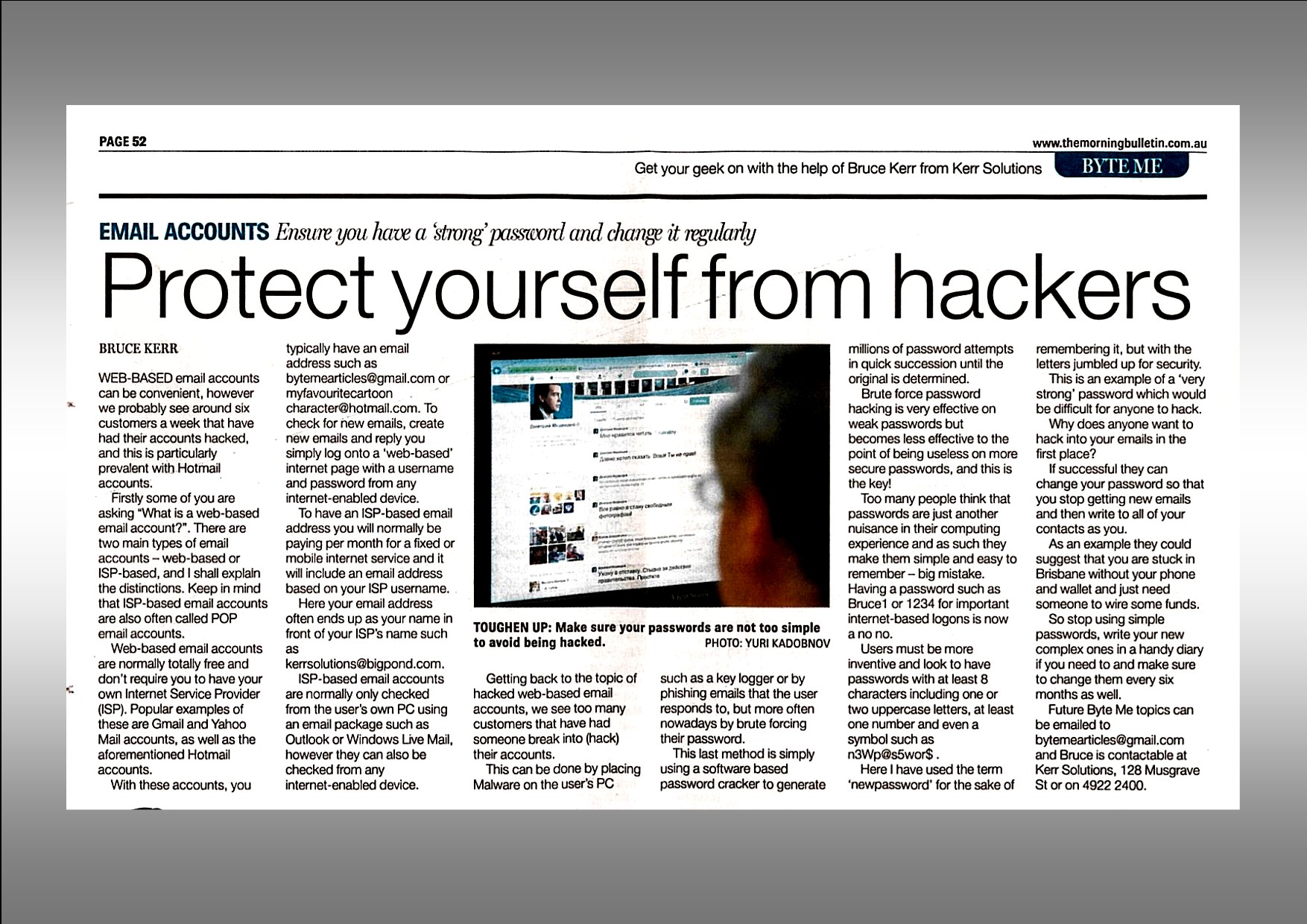Protect Yourself From Hackers
Web based email accounts can be convenient however we probably see around 6 customers a week that have had their accounts hacked and this is particularly prevalent with Hotmail accounts. Firstly some of you are asking “What is a web based email account?”. There are two main types of email accounts – web based or ISP based and I shall explain the distinctions. Keep in mind that ISP base email accounts are also often called POP email accounts.
Web based email accounts are normally totally free and don’t require you to have your own Internet Service Provider (ISP). Popular examples of these are Gmail & Yahoo Mail accounts as well as the aforementioned Hotmail accounts. With these accounts, you typically have an email address such as [email protected] or [email protected] . To check for new emails, create new emails and reply you simply log onto a ‘web based’ Internet page with a username and password from any Internet enabled device.
To have an ISP based email address you will normally be paying per month for a fixed or mobile Internet service and it will include an email address based on your ISP username. Here your email address often ended up as your name in front of your ISP’s name such as [email protected] . ISP based email accounts are normally only checked from the users own PC using an email package such as Outlook or Windows Live Mail however they can also be checked from any Internet enabled device.
Getting back to the topic of hacked web based email accounts we see too many customers that have had someone break into (hack) there accounts. This can be done by placing Malware on the users’ PC such as a key logger or by Phishing emails that the user responds to but more often nowadays by brute forcing their password. This last method is simply using a software based password cracker to generate millions of password attempts in quick succession until the original is determined.
Brute force password hacking is very effective on weak passwords but becomes less effective to the point of being useless on more secure passwords, and this is the key! Too many people think that passwords are just another nuisance in their computing experience and as such they make them simple and easy to remember – big mistake. Having a password such as Bruce1 or 1234 for important Internet based logons is now a no no.
Users must be more inventive and look to have passwords with at least 8 characters including one or two uppercase letters, at least one number and even a symbol such as n3Wp@s5wor$ . Here I have used the term ‘newpassword’ for the sake of remembering it but with the letters jumbled up for security. This is an example of a ‘very strong’ password which would be difficult for anyone to hack.
Why does anyone want to hack into your emails in the first place? If successful they can change your password so that you stop getting new emails and then write to all of your contacts as you. As an example they could suggest that you are stuck in Brisbane without your phone & wallet and just need someone to wire some funds. Your friends may reply with emails such as “you silly bugger – how much do you need”, which is now an email that only they receive and can again reply to.
Breaking into someone’s email account also helps with identify theft which can also prosper the perpetrator in many ways. So stop using simple passwords, write your new complex ones in a handy diary if you need to and make sure to change them every 6 months as well.
Future Byte Me topics can be emailed to [email protected] and Bruce is contactable at Kerr Solutions, 205 Musgrave Street or on 49 222 400.
For more advice and assistance from Kerr Solutions, like and follow us on Facebook

